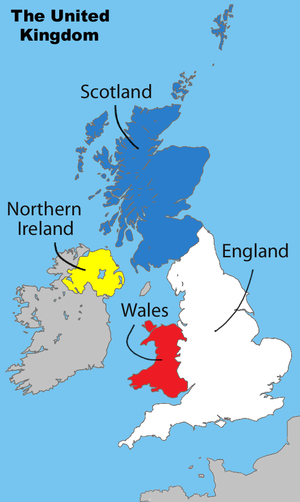 |
| IMG_1075 (Photo credit: tantek) |
Swearing in literature is probably as old as the written word. It offends
many, amuses probably as many, and huge numbers remain indifferent to it. So,
its use results in mixed reactions. Is there justification for it?
'Fuck off, mate. 'Course there is.'
Okay, so some of you flinched, others smiled. Others expected this sudden
interjection.
'You're a cunt!'
Different? Of course. For two reasons, I think. Firstly, of course, this
statement is an insult, downright offensive in intention as well as tone.
Secondly, the word 'cunt' is possibly the last expletive available that has any
real shock value. We're all subject to the once taboo 'fuck', and its
derivatives, on a daily basis. It's used by all classes, all ages, both
genders. It no longer has any emphatic value and has become merely a 'filler'
for those without the intelligence, imagination or energy to come up with a
more apposite epithet. It's a shame that something once so full of the power to
startle and shock has, through too much usage, become no more than a lazy way
of filling space whilst the speaker has time to think of the next thing he
wishes to say.
'Cunt', on the other hand, is most definitely taboo is many circles,
profoundly shocking in others and considered offensive in most. The Shorter
Oxford English Dictionary gives its root as the Old Norse word 'kunta' and I
recall coming across it in Chaucer's Canterbury Tales, which I studied for my
'A' Level English Lit exam, as 'queynte'. Its definition is straightforward;
meaning either female genitals, the vulva; or a person who is either very
unpleasant or stupid, or both. Why the name for the most desirable part of a
woman should also be used as an insult referring to horrible or stupid people
is a matter for another discussion. Suffice it to say that it probably reflects
on the way the Abrahamic, and most other, religions have viewed women from
before Christian times.
In my youth, had I referred to my father as a 'bugger', I'd have received
a clip round the ear. Later, as we both aged, I was able to call him, 'the
silly old bugger' as a term of affection understood by all, including him, and
make him smile. Such is the fluidity of language subject to usage. The same
could be said of 'sod', once a pejorative term for a homosexual man and now a
word used so casually that many have no idea of its original derivation as 'one
who engages in sodomy'.
What, for one person is an offensive expletive, is, to another, a
harmless epithet with little or no real meaning. I know, for instance, that in
the Bible Belt of America, where the myths of ancient misogynistic men still
have greater relevance than modern inclusive philosophies, words such as 'hell'
and 'damn' are more than merely frowned upon. In the more enlightened cultures
of the West, they are, of course, viewed as mild in the extreme and few parents
would consider reprimanding a child heard uttering such innocuous words.
So, if you're tempted to use expletives in your writing, it's essential
that you consider your readers. There is absolutely no doubt that whatever
expletive you employ you will offend some. It's inevitable because of narrow-mindedness,
cultural implanting, ignorance, taste or simple preference. Therefore, I
suggest you think very carefully before you use words that some will see as
'bad'. That there are no 'bad' words is self-evident, of course, but there is
'inappropriate usage', and it is this that the writer should avoid.
It may be perfectly acceptable and, indeed, essential to the story for
the writer to place long strings of extremely offensive words into the mouth of
a character, because that is the way that particular character would
speak. The quoted speech of a coarse man
may be absolutely necessary to the understanding of his character. And 'You
fucking, shitty cunt!' may express exactly what such a character would say to
another in certain circumstances, and therefore be perfectly acceptable. But,
as the author, the narrator, it might be very unwise to employ the same string
of words in describing that same character. The reader frequently reads the
words of the narrator as those of the author, regardless of how inaccurate that
assumption may be. So, beware.
Context is everything in this issue. If the use of an expletive is
appropriate in the circumstances, then it's incumbent on the writer not to
substitute it with something mild in the hope of avoiding offence. It is less
than honest to turn down the heat, so to speak. But remember the old
expression; call a spade a 'spade', by all means, but perhaps avoid calling it
a 'fucking shovel', unless that's how the speaking navvy would refer to it.
I hope this has been useful. I'd appreciate your observations and
comments. We can all learn from each other and that's my intention in these
short posts that are intended to help writers entertain their readers without unnecessarily
offending them.











